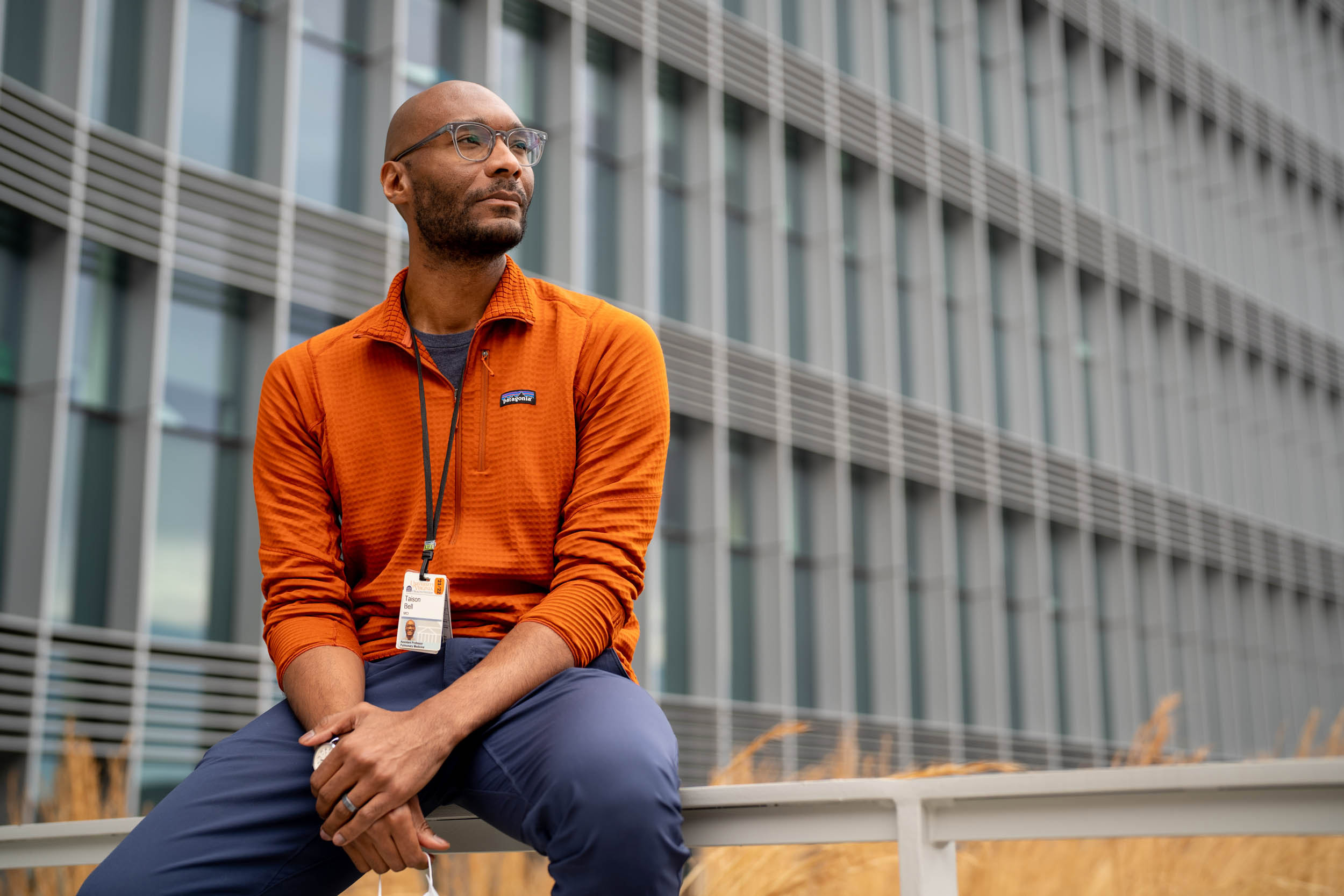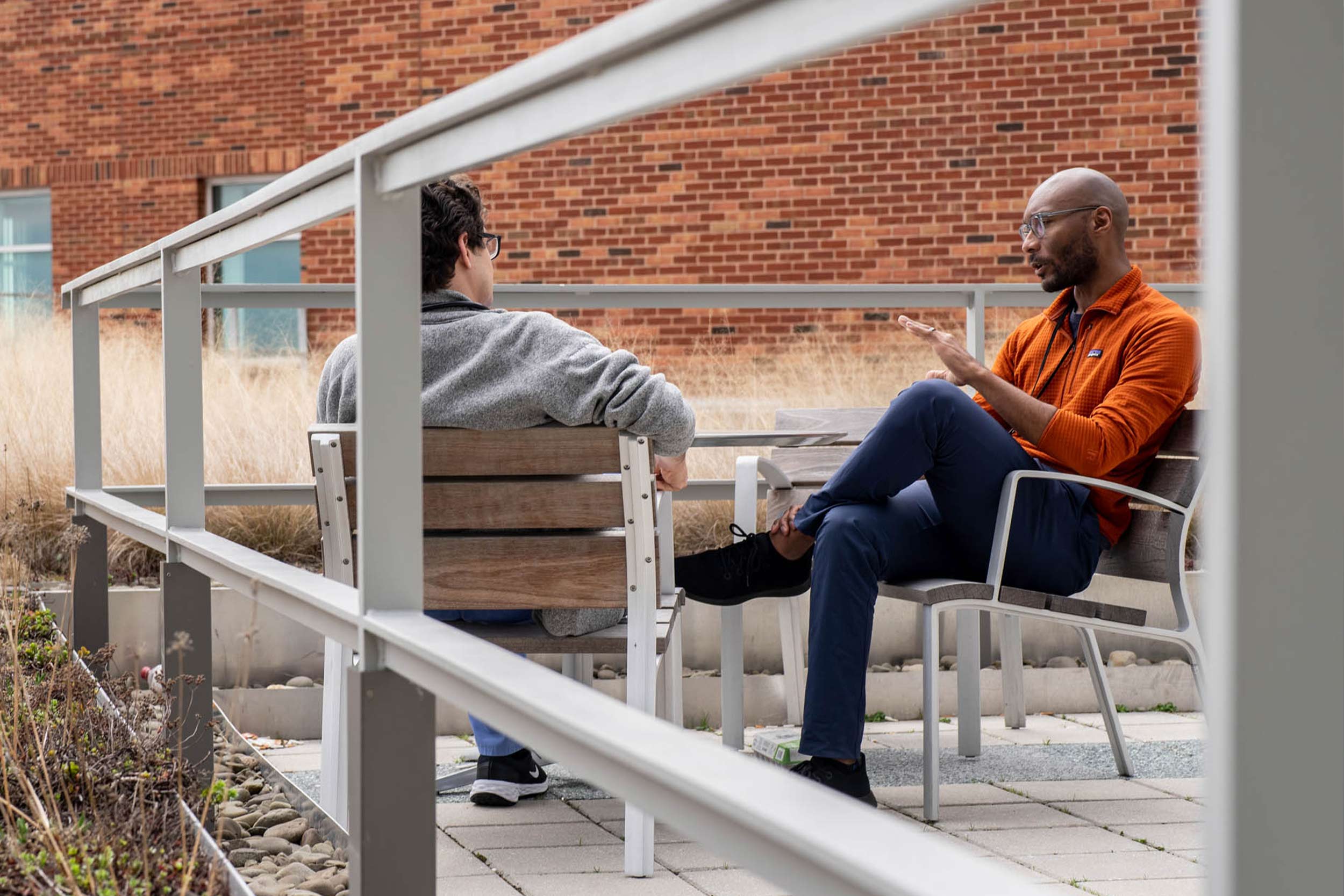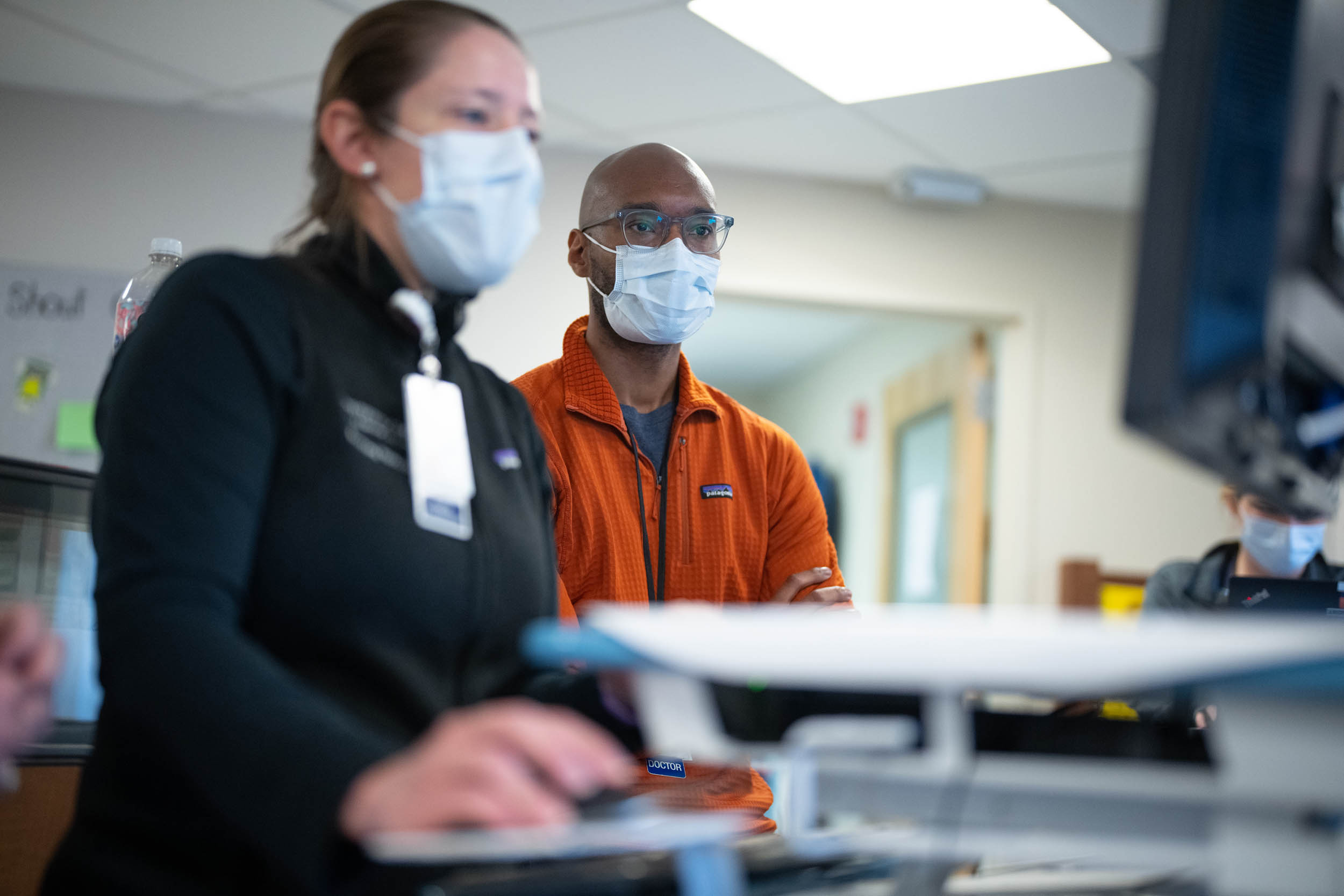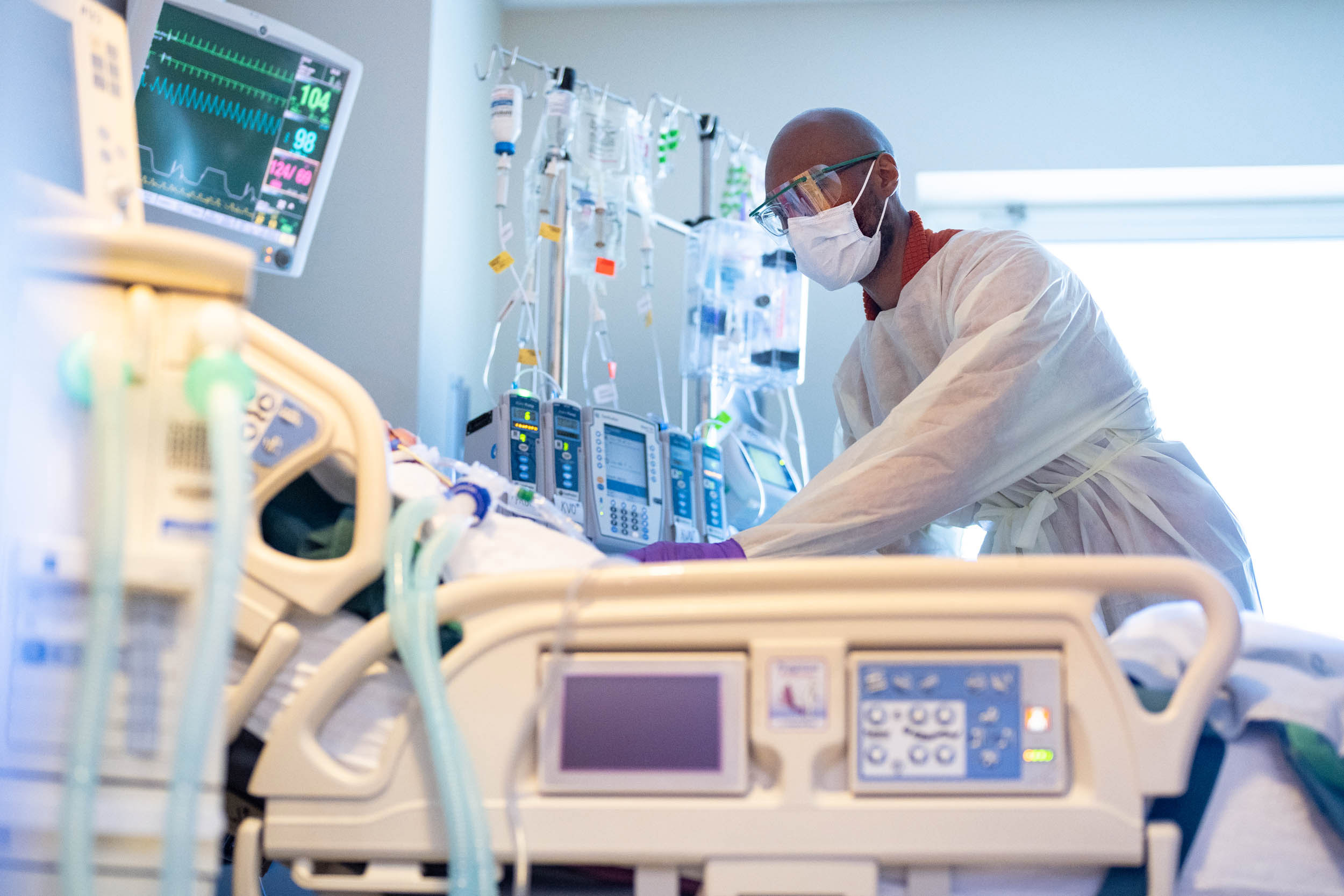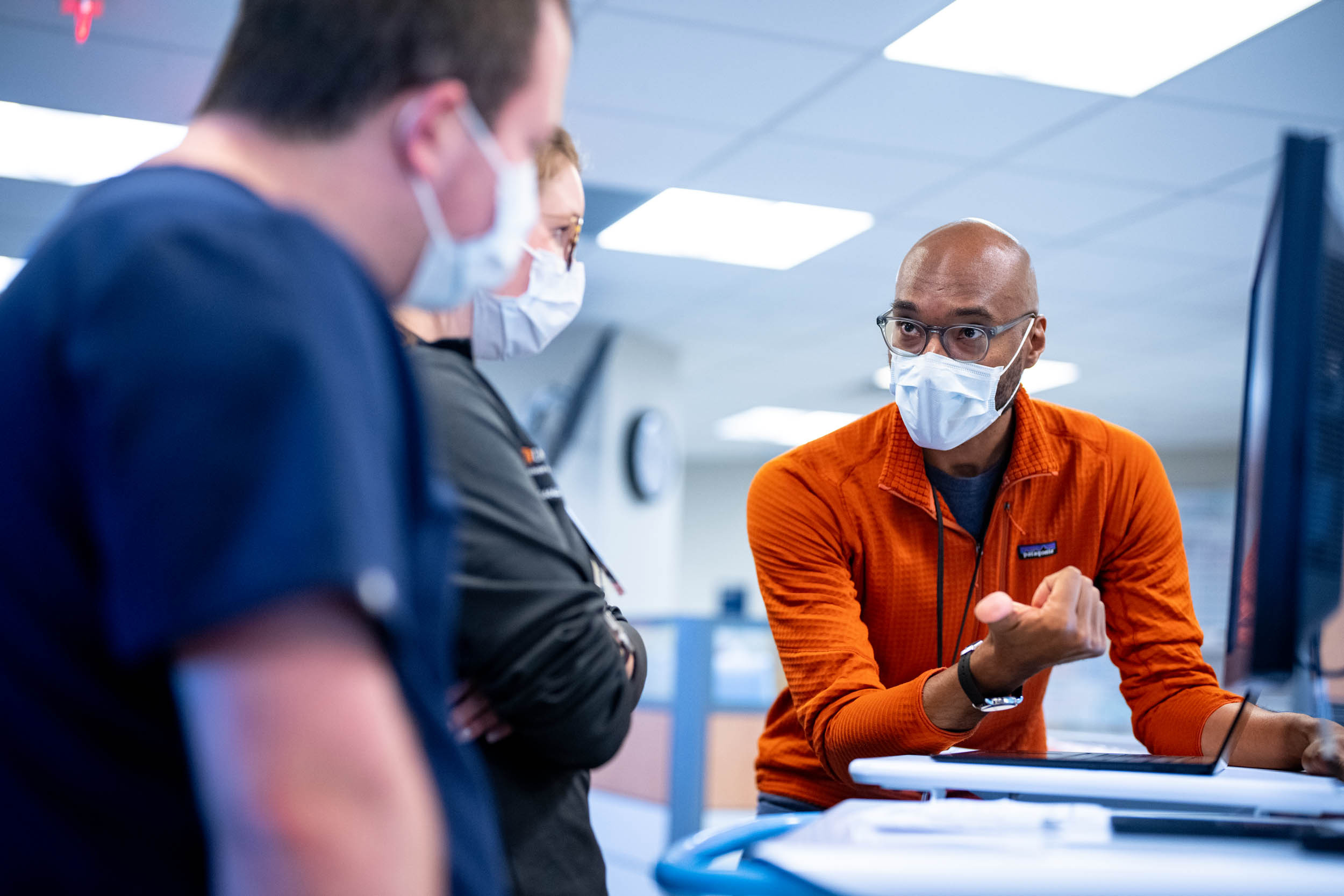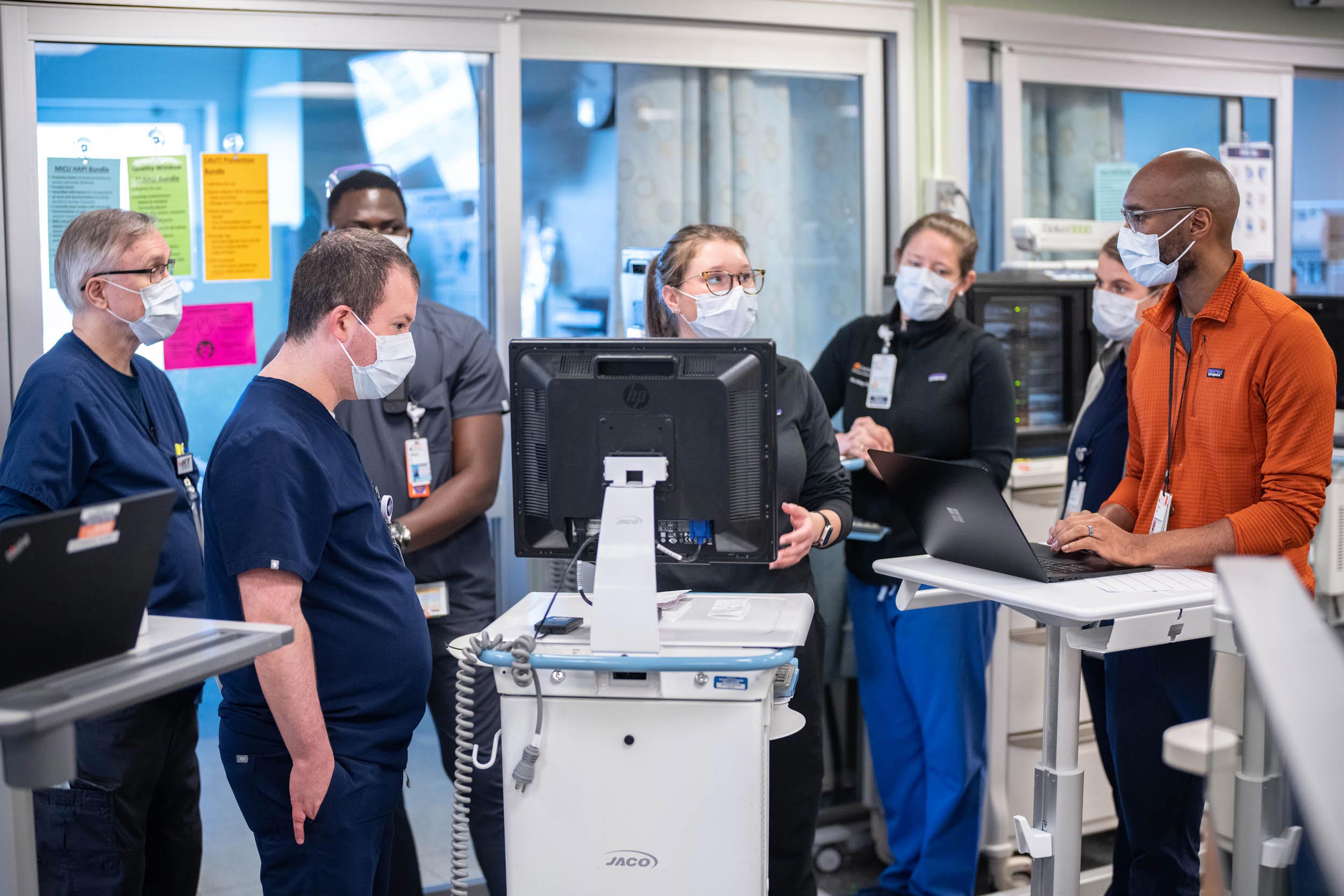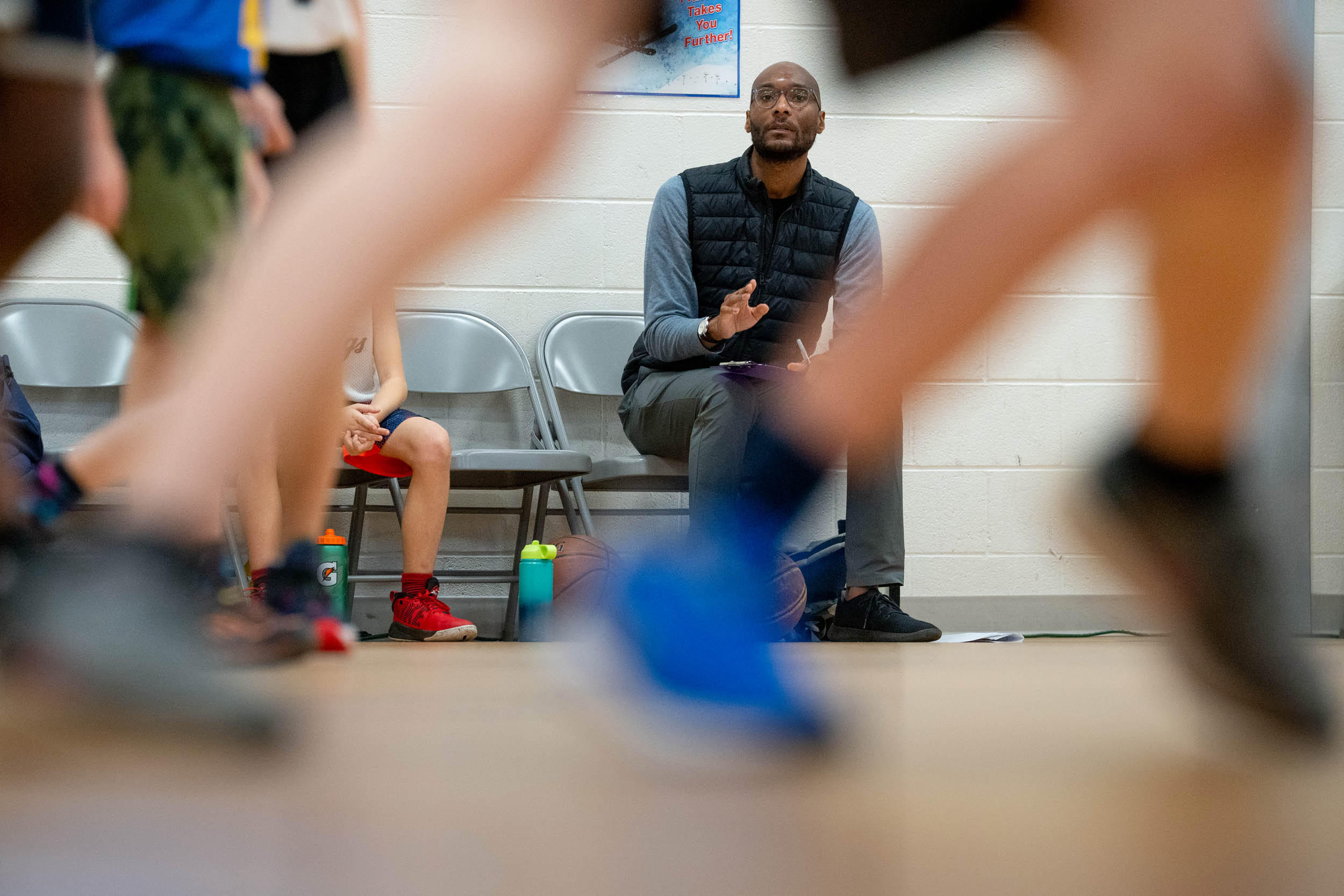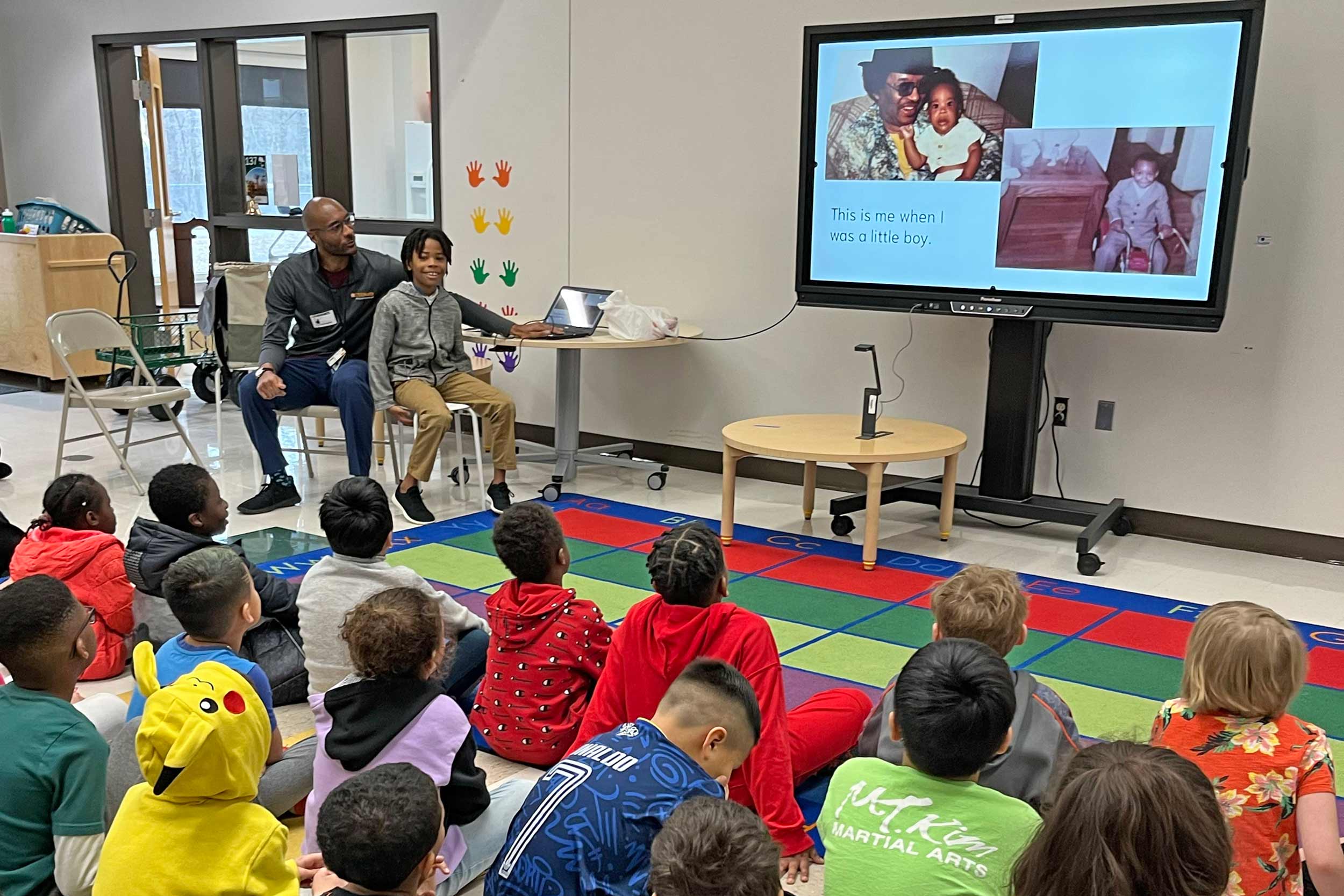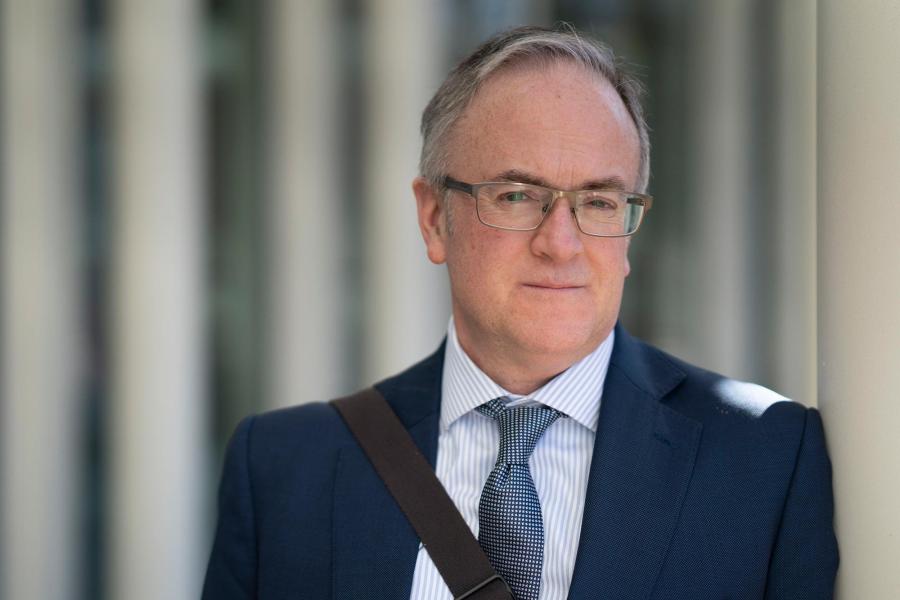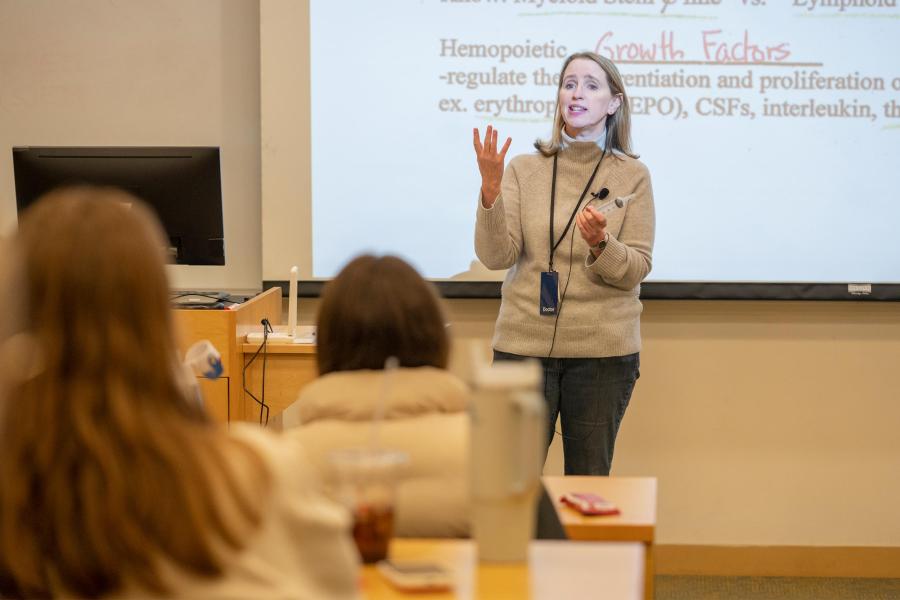“Why don’t we just plan our drama ahead of time?”
Anyone who has worked for Dr. Taison Bell in the intensive care unit he runs at UVA Medical Center has likely heard some variation of those words.
The medical ICU requires the ability to move fluidly from step to step. One way to accomplish that, Bell said, is to reduce stress prior to encountering it.
“If the patient starts to breathe poorly, let’s have a plan for what we’re going to do,” he tells his team. “If their blood pressure goes down, let’s work out what we’re going to do. And let’s do it now, while our heart rates are normal, we’re not stressed out, we’re drinking our coffee.”
Inevitably, some patients crash. Some require mechanical ventilation. By then, he said, “You’ve rehearsed it hundreds of times before you actually go in to do it.”
That’s just one of the ways Bell, an assistant professor in the University of Virginia School of Medicine and a specialist in infectious diseases and critical care, has become a master of flow.
He moves seamlessly from bedside to courtside, to coach his son’s basketball games – from a recruiting session for the Summer Medical Leadership Program he directs to an elementary school career talk – and ever-faithfully on.
He’s vice chair of faculty affairs for the School of Medicine, and he produces his department’s podcast. He associate-edits an infectious diseases journal and co-directs fourth-year medical student rotations in the medical ICU. He’s co-founder of a medical startup aiming to provide early colon cancer detection using infrared imaging.
For Bell, this is 40. Like that famous painting of “The Great Wave,” his career has been a boat pointing toward an oncoming tsunami, and that’s intentional. The bigger the wave, the more movement and change created.
“I’m an ‘intensivist,’” he said. “So ‘intense’ is literally in the name of my job. I got into intensive care medicine knowing that there probably should be some expiration date on it. It can be stressful and taxing, emotionally and physically. But I don’t know when that point is going to be.”
Don’t expect it to be tomorrow or the next day. The hectic, expansive nature of his work suits him. By combining his medical practice with teaching and mentorship, he facilitates progress in others as well.
